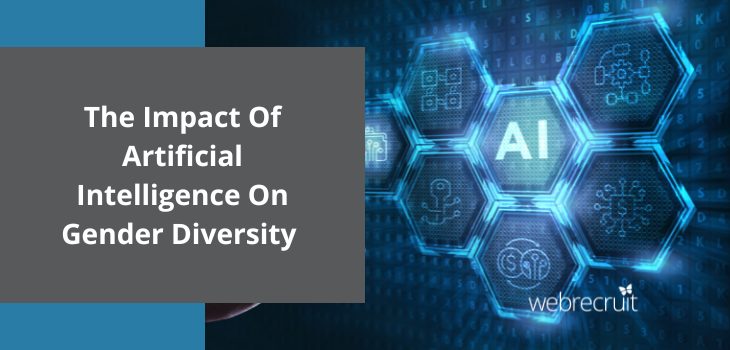Artificial Intelligence (AI) has gained immense popularity in various industries, including recruitment. With its promise of efficiency and objectivity, AI has become an increasingly common tool in the hiring process. However, the study “Does Artificial Intelligence Help or Hurt Gender Diversity? Evidence from Two Field Experiments on Recruitment in Tech” delves into the nuanced impacts of AI on gender diversity during the recruitment process.
In this article, we will delve into the study’s findings and analyse the possible implications of AI on the future of recruitment, specifically in the context of gender diversity. While the study centres on the tech industry, its conclusions can be extended to the hiring of candidates across all sectors.
Does Artificial Intelligence Help Or Hurt Gender Diversity?
Researchers at the University of California, Berkeley, and the University of California, Irvine, conducted a study to explore the impact of AI on gender diversity within the tech industry through two field experiments. The research is grounded in the premise that while AI is a tool for unbiased decision-making, it can also perpetuate existing biases if not carefully managed.
Key Findings From The Study
- AI And Gender Bias: The study found that AI could both mitigate and exacerbate gender biases. When AI was used to screen resumes, it reduced gender bias by 6% compared to human screeners. However, when AI was used to create job advertisements, it increased gendered wording, which could potentially deter female applicants.
- AI’s Impact On Female Applicants: The research highlighted that AI-generated job advertisements were 2% less likely to attract female applicants, indicating a subtle yet significant impact on gender diversity.
- AI’s Role In Resume Screening: Interestingly, AI was found to be less biased than human screeners when evaluating resumes, suggesting that AI can play a positive role in mitigating unconscious biases during the recruitment process.
Implications For The Tech Sector
The tech sector, already grappling with gender diversity issues, stands at a crossroads where AI can either be a tool for enhancing diversity or inadvertently perpetuating existing disparities. The study underscores the importance of mindful and ethical AI usage, ensuring that the technology is leveraged in a manner that actively supports diversity and inclusion efforts.
What Do Hiring Managers Need To Be Aware Of When Using Artificial Intelligence?
- Mindful AI Usage: Be cognizant of the potential biases that AI can introduce, particularly in job advertisements, and actively work towards mitigating them.
- Balanced Approach: Utilise AI as a tool to assist, not replace, human decision-making, ensuring that the technology is used ethically and effectively.
- Continuous Monitoring: Regularly assess and adjust AI algorithms to ensure they are promoting, not hindering, gender diversity.
- Inclusive Recruitment: Develop recruitment strategies that are inherently inclusive, ensuring that AI is used to support, not undermine, these efforts.
What Can Hiring Managers Do To Low Gender Biases When Using Artificial Intelligence?
- AI Audit: Regularly audit AI systems to identify and rectify any biases in job advertisements and resume screening processes.
- Human Oversight: Ensure that there is human oversight in AI-driven processes to validate the decisions made by the technology.
- Diversity And Inclusion Training: Implement D&I training for all individuals involved in the hiring process, ensuring that they are aware of potential biases and equipped to mitigate them.
- Policy Development: Develop and implement policies that guide ethical AI usage in recruitment, ensuring that the technology is utilised in a manner that supports gender diversity.
In essence, while AI presents a promising tool for enhancing efficiency in recruitment, its impact on gender diversity is multifaceted and requires mindful management to ensure that the technology is used ethically and effectively.
Reference: The insights and data points are derived from the study “Does Artificial Intelligence Help or Hurt Gender Diversity? Evidence from Two Field Experiments on Recruitment in Tech” conducted by researchers at the University of California, Berkeley, and the University of California, Irvine.






